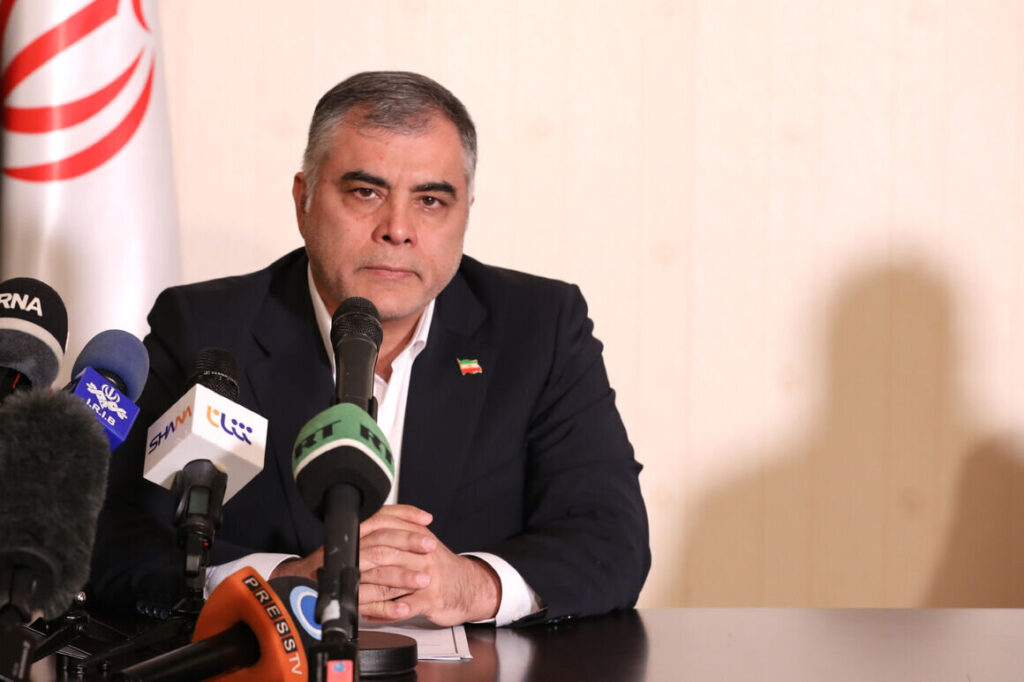Mohsen Paknejad spoke at a press conference on Friday following the committee meeting, saying that the expert committee on trade, economy, finance, banking, transportation, customs, industry, mining, energy, health, agriculture, tourism and technology took part. A final memorandum of understanding has been signed by both parties.
Thanks to Russia for the hosting, Paknejad said that past decisions signed at the meeting, in the expert committee and written, laid the foundation for the expansion of bilateral economic cooperation, especially under new international conditions.
The Minister of Oil highlighted key discussion points, including upstream oil-gas cooperation, follow-up on the agreement with GAZPROM, establishing a gas hub in Iran, gas trade, collaboration in the petroleum-chemical value chain, and exchange of petroleum products.
He also pointed to strategic cooperation in nuclear energy, citing joint projects for the peaceful use of nuclear power, including nuclear power facilities.
Another priority is to activate the international north-south transport corridor, focusing on completing the Rasht-Astara Railway as an important missing link.
Paknejad highlighted the expansion of banking cooperation, adjustments to standards to boost trade, and strengthening collaborations in agriculture, health and habits.
Other pathways of cooperation remain open, but the committee will advance as a benchmark for assessing Iran-Russia’s economic ties, focusing primarily on these areas.
He referenced the recognition of the comprehensive strategic partnership treaty by the two countries’ parliaments, and said its enforcement would open a new chapter of sustainable and balanced cooperation. The Ministry of Oil will work as the leader of the committee to realize these agreements.
Paknejad emphasized the need for surveillance, removed domestic obstacles, removed inter-agency coordination, and expressed his hopes for stable, operational and effective Iran-Russia cooperation, in line with current conditions.
When asked about Russian companies’ involvement in Iran’s energy sector, Parknejad said current bilateral trade ($5 billion) is far below the actual possibility. The upcoming free trade agreement with the Eurasian Economic Union (setting approval by Iranian parliament by May 15) further promotes Russia’s investment in Iran’s oil and gas sector.
He pointed to four active oil contracts in Russia in Iran, and the company had developed seven oil fields and $4 billion in investments. Bilateral follow-ups will expand the presence of Russian companies in Iranian energy projects, particularly after the free trade agreements have been in effect.
Iran is ready for closer energy cooperation with Russia, said Paknejad wanted concrete benefits for both countries.
Russian Energy Minister Sergey Tsivilov answered the questions and highlighted past oil and gas agreements, including a contract for gas transport to Iran in December 2023. The project will soon enter implementation in two phases, boosting the role of Russian companies in Iran’s energy market.
He said cooperation is based on a common strategic interest and could enhance Iran’s role in the regional energy supply chain.
Tsivilov also cited the high-level partnership treaty signed earlier this year, calling it the new horizon of the Tehran-Moscow relationship, creating a fresh pathway for private sector involvement.
An effective Iran-EAEU free trade agreement on May 15th removes major trade barriers. With bilateral trade reaching $4.8 billion in 2024, the transaction marks the stage for a larger economic and energy cooperation leap.
He highlighted the role of the Joint Committee in maximizing the possibilities of both countries.
MNA/shana.ir

